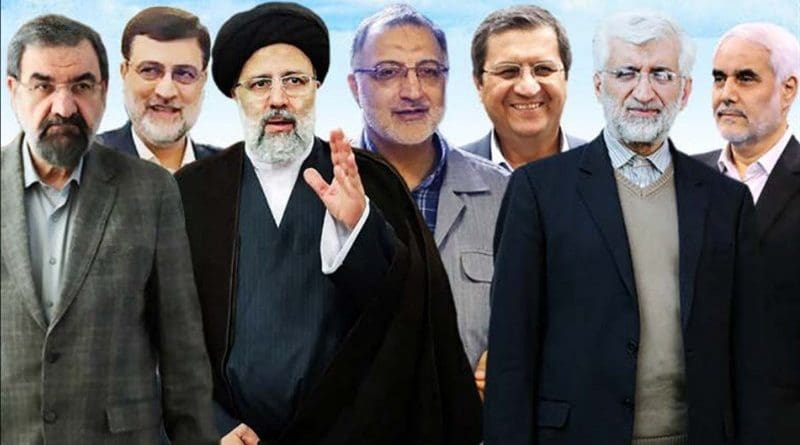Iran’s Presidential Candidates And Coronavirus Redline – OpEd
By Hamid Enayat
Isn’t it strange that none of the presidential candidates in Iran, whether disqualified by the Guardian Council or not, have opted to mention the grappling coronavirus dilemma in Iran? None of the candidates’ campaigns mentioned the virus or provided a plan to vaccinate the Iranian people and provide economic relief. An Oxfam poll of 300 of the world’s leading economists shows that 87% believe that COVID-19 increases inequality in society. In their first debate about the economy, no one candidate dared to talk about the pandemic, its economic impact on society, and any plan to combat the virus.
According to Iran’s Coronavirus studies, about 3.7 million business and individual entities have been identified as affected by the pandemic. What are the candidates’ policies to counteract these losses? According to Iran’s Parliamentary Research Center, between 2.8 and 6.4 million “current employees” lose their jobs. What are the plans on their agenda to support these people?
Iranian elections should not be compared with the ones in democratic countries. The process is entirely undemocratic and void of any transparency. However, Iran’s Supreme Leader, Ali Khamenei, uses this process to convince the western countries that Iran has a democratic voting system. Elections in Iran maintain the balance within the government. In other words, it is easier to divide the hierarchy of power among different rivals in the government using the election mechanism. Thus, election debates are more like a joke than a serious debate.
Ali Al-Qasi Mehr, the country’s Attorney General, spoke in a meeting entitled “Coordinating the Improvement of the Performance of the Judiciary and Security Systems in the Upcoming Elections” in Tehran on Sunday, June 30. The Attorney General threatened the approved presidential candidates not to cross the red border of the regime, saying, “Candidates should not cross the red lines of the system in their campaigns and speeches. They should not sacrifice national interests for personal, partisan, factional, and group interests. If they cross the red lines of the system, they will be dealt with decisively according to legal standards, regardless of position and status.”
Khamenei’s Fatwa Banning the Import of Reputable Vaccines
It is now clear that COVID-19 and its human and economic consequences are beyond the red line that no candidate should cross. A few months ago, Khamenei issued an official fatwa banning the import of reputable vaccines from Britain, France, and the United States.
Khamenei has experienced two nationwide uprisings in 2017 and mid-November 2019, and his regime only managed to quell the uprising by firing directly at insurgent youth in mid-November 2019. He is planning to prevent or postpone another uprising that will surely be a game-changer. As a result, he wants to bring society to a standstill with the great massacre left by COVID-19 so that they do not turn to another uprising.
After the 2019 uprising, resistance units spread throughout Iran and seek to change the regime by destroying symbols of the regime, such as Soleimani, Khamenei, or Khomeini. That is why Khamenei, in fear of these resistance units, wants to keep the regime afloat by doing absolutely nothing about the Coronavirus.
Installing Ibrahim Ra’isi as the Next President
With the help of the Guardian Council, Khamenei has disqualified all candidates who he thinks might disagree with his suppressive and murderous policies in full. Among the candidates who were axed are his current adviser and former parliamentary speaker Ali Larijani.
Reisi is Khamenei’s preferred candidate. Everyone in Iran knows this. Many of the billboards currently installed in Iran are pointing to his presidency. According to Amnesty International and many other international bodies, he was the director of the architects of this massacre. He advocates interventionist policies and opposes engagement with the West.
Although bringing in a president of this caliber adds to Khamenei’s further isolation at home and abroad and makes it more challenging to interact with the outside world in the face of difficult economic collapse, he has no choice. Khamenei has to choose between the bad and the worst for his regime’s survival.

